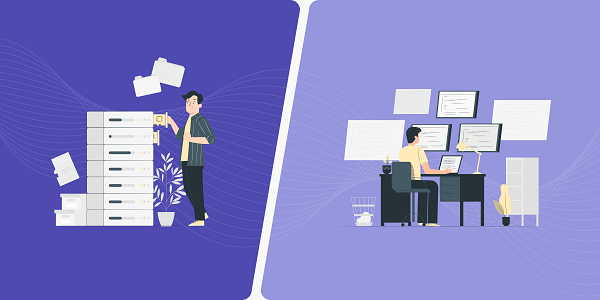Residential Proxies
Allowlisted 200M+ IPs from real ISP. Managed/obtained proxies via dashboard.

Proxies
Residential Proxies
Allowlisted 200M+ IPs from real ISP. Managed/obtained proxies via dashboard.
Residential (Socks5) Proxies
Over 200 million real IPs in 190+ locations,
Unlimited Residential Proxies
Use stable, fast, and furious 700K+ datacenter IPs worldwide.
Static Residential proxies
Long-lasting dedicated proxy, non-rotating residential proxy
Dedicated Datacenter Proxies
Use stable, fast, and furious 700K+ datacenter IPs worldwide.

Web Unblocker
View content as a real user with the help of ABC proxy's dynamic fingerprinting technology.
Proxies
API
Proxy list is generated through an API link and applied to compatible programs after whitelist IP authorization
User+Pass Auth
Create credential freely and use rotating proxies on any device or software without allowlisting IP
Proxy Manager
Manage all proxies using APM interface

Proxies
Residential Proxies
Allowlisted 200M+ IPs from real ISP. Managed/obtained proxies via dashboard.
Starts from
$0.77/ GB
Residential (Socks5) Proxies
Over 200 million real IPs in 190+ locations,
Starts from
$0.045/ IP
Unlimited Residential Proxies
Use stable, fast, and furious 700K+ datacenter IPs worldwide.
Starts from
$79/ Day
Rotating ISP Proxies
ABCProxy's Rotating ISP Proxies guarantee long session time.
Starts from
$0.77/ GB
Static Residential proxies
Long-lasting dedicated proxy, non-rotating residential proxy
Starts from
$5/MONTH
Dedicated Datacenter Proxies
Use stable, fast, and furious 700K+ datacenter IPs worldwide.
Starts from
$4.5/MONTH
Knowledge Base
English
繁體中文
Русский
Indonesia
Português
Español
بالعربية

The Impact of Artificial Intelligence on Browsing, Labor Division, and Data Management in 2025
Artificial Intelligence (AI) continues to revolutionize various aspects of our lives, from the way we browse the internet to how labor is divided in the workforce and how data is managed. As we look ahead to 2025, the role of AI in these areas is set to become even more prominent, bringing about significant changes and opportunities. In this blog post, we delve into how AI will shape the future of browsing, labor division, and data management, and the implications it holds for individuals and businesses alike.
AI has already transformed the way we browse the internet, with personalized recommendations becoming a common feature on many platforms. In 2025, AI will play an even greater role in tailoring our online experiences, providing more accurate and relevant suggestions based on our preferences and behaviors. This will not only save time for users but also lead to increased engagement and satisfaction.
Imagine browsing for a new pair of running shoes online, and AI algorithms analyze your past purchases, browsing history, and even social media interactions to recommend the perfect pair for your needs. This level of personalization will not only streamline the shopping process but also introduce you to products you may not have discovered otherwise, enhancing your overall online shopping experience.
The labor landscape is evolving rapidly, driven by advancements in AI and automation technologies. In 2025, we can expect to see a further shift in labor division, with AI taking on routine and repetitive tasks, allowing humans to focus on more creative and strategic aspects of their work. This reimagined labor division will lead to increased efficiency, productivity, and innovation in various industries.
For instance, in manufacturing, AI-powered robots can handle repetitive assembly line tasks with precision and speed, while human workers oversee quality control and process optimization. In the healthcare sector, AI algorithms can assist doctors in diagnosing diseases more accurately and quickly, enabling them to provide better patient care. By streamlining labor division in this way, businesses can leverage the strengths of both humans and AI to drive growth and competitiveness.
Data management is another area that will be significantly impacted by AI advancements in 2025. With the exponential growth of data, businesses are facing the challenge of extracting meaningful insights and making data-driven decisions efficiently. AI offers a solution to this problem by automating data analysis, providing real-time insights, and predicting trends and patterns in large datasets.
By leveraging AI-driven analytics tools, businesses can gain a comprehensive understanding of their customers, market trends, and operational performance. For example, retailers can use AI to analyze customer behavior and preferences, enabling them to tailor marketing strategies and product offerings effectively. Similarly, financial institutions can use AI to detect fraudulent activities and manage risks more proactively. The ability to harness AI-driven insights will empower businesses to make informed decisions, optimize processes, and drive growth in the digital age.
In conclusion, the transformative power of AI will continue to reshape the way we browse, divide labor, and manage data in 2025 and beyond. By embracing AI technologies and leveraging their capabilities, individuals and businesses can unlock new opportunities, enhance efficiency, and stay ahead in a rapidly evolving digital landscape. As we navigate this AI-driven future, it is essential to approach these changes with a proactive mindset, adaptability, and a willingness to embrace innovation. The possibilities are endless, and the potential for growth and progress is limitless in a world where AI is changing the game.
Featured Posts
Popular Products
Residential Proxies
Allowlisted 200M+ IPs from real ISP. Managed/obtained proxies via dashboard.
Residential (Socks5) Proxies
Over 200 million real IPs in 190+ locations,
Unlimited Residential Proxies
Use stable, fast, and furious 700K+ datacenter IPs worldwide.
Rotating ISP Proxies
ABCProxy's Rotating ISP Proxies guarantee long session time.
Residential (Socks5) Proxies
Long-lasting dedicated proxy, non-rotating residential proxy
Dedicated Datacenter Proxies
Use stable, fast, and furious 700K+ datacenter IPs worldwide.
Web Unblocker
View content as a real user with the help of ABC proxy's dynamic fingerprinting technology.
Related articles

How does the ChatGPT RAG example improve information processing capabilities
Analyze the actual application scenarios of ChatGPT combined with Retrieval Augmented Generation (RAG) technology, explore its value in knowledge integration and data acquisition, and understand how abcproxy provides underlying support for the RAG system.